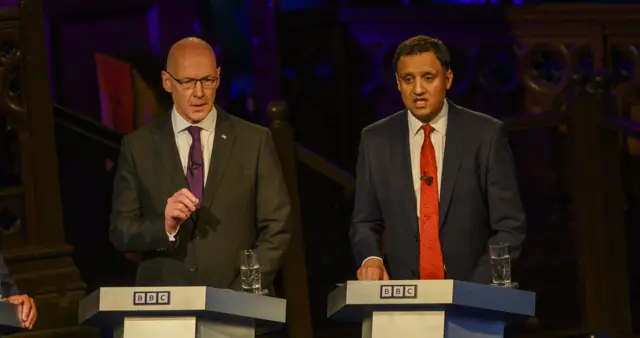Lorna Slater: Super wealthy must pay their fair sharepublished at 21:06 BST 11 June 2024
Lorna Slater on the cost of living crisis
Lorna Slater says that taxes have been cut for the wealthiest and the cuts have been paid for through slashing public spending.
The Scottish Green co-leader says they've "made out like bandits since Covid", doubling or even tripling their wealth.



